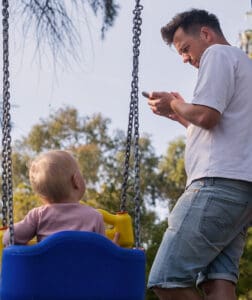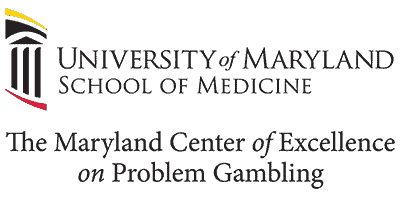Where has all our Money Gone?
Coping with a family member's problem gambling behavior
Losing a Loved One to Gambling?
The negative effects of problem or compulsive gambling on the family are widespread in this country . When there is a problem or compulsive gambler in the family, more than just the gambler feels the negative impact. The entire family suffers because of the gambler’s behavior. Serious financial, psychological, emotional, social, and legal problems may completely destabilize family functioning.
According to the National Council on Problem Gambling, an estimated 2 million U.S. adults (1 percent of the population) are compulsive or disordered gamblers. Another estimated 4 to 6 million (2 to 3 percent) are considered problem gamblers. An estimated one-third (35 percent) of adult problem gamblers have children at home under the age of eighteen. In Maryland, 3-6% of adults are disordered gamblers (Tracy, et.al. 2020).
Out-of-control gambling and repeated gambling losses take a tremendous toll on the family finances. Signs of financial difficulties related to gambling may include the following:
- Financial statements go missing
- Calls from creditors
- Mounting debt
- Unexplained cash advances or charges on credit cards
- Valuables disappear from the home
- Bank accounts drained
- Money for bills used for gambling

Tension in the family...
Trying to deal with the stress and tension brought on because of the gambler’s behavior jeopardizes family relationships. When the spouse, children, and other family members can’t trust the gambler and have no confidence in the gambler, the result can be devastating. Lies, staying out late, manipulation and domestic abuse all contribute to the breakdown of the family unit. Shame, avoidance of friends, and secrecy further heighten the isolation family members feel as the gambler’s behavior remains out of control.
Emotional insecurities also begin to afflict all the family members closest to the problem gambler. The spouse or family members may hide their feelings and refrain from saying certain things, afraid that it may trigger an outburst. Children often seek to distract the attention away from the gambler in many ways, such as being disruptive or even becoming more withdrawn, quiet, and fearful. Older children may choose to pick up the responsibilities of one or both parents.
If you are a family member of a problem gambler, there are some immediate things you can do.
- Seek help – the gambler may not be ready to get treatment or counseling, but you certainly can take the initiative. You don’t need to go through this alone. Here in Maryland treatment is at no cost for the gambler and/or their family member.
- Educate yourself – Learn as much as you can about gambling addiction and what you can do to cope with your family member’s gambling.
- Lose your guilt – You are not the cause of your spouse or family member’s gambling addiction. When possible, you can encourage the problem gambler to get help. Whether or not the gambler is ready to seek help should not deter you from seeking help.
In the end, the family can recover from the negative consequences of problem gambling. There is hope, there is help. Reach out today.
Call, text, or chat the Maryland Helpline at 1-800-GAMBLER, a free, confidential, 24/7 service or go to https://www.mdcoalition.org/who-we-help/problem-gambling.
GET THE FACTS
For the majority of adults, gambling can be a fun and entertaining experience, but there are risks involved. It is critical to know these risks and have a plan before you begin betting on sports.
- Gambling problems are often hidden, and many people may not be aware of them.
- Problem gambling can compromise, disrupt or cause damage to one’s life.
- Problem gambling has the highest rate of suicide of any addictive disorder, with 1 in 5 attempting suicide.
People with gambling problems are at high risk for incarceration and suicide. It is very important to get help as soon as possible.
Share This Page:
Is Gambling Affecting Your Family?
- Get Help Today -
Gamblers, their family, their friends, or employers are welcome to call or text the free and confidential helpline.
Call or Text the Maryland Problem Gambling Helpline 24/7
As a Maryland resident, you can be connected to a treatment provider for “no Cost” counseling or to to a Peer Recovery Support Specialist who has live experience in recovery and has been there.
MORE OPTIONS:
Self Assessment

If you, or someone you know, struggles with problems due to gambling behavior we can help! Call or text:
(1-800-426-2537)
Maryland Problem Gambling Helpline… It’s free, confidential and 24/7
©2023 THE MARYLAND CENTER OF EXCELLENCE ON PROBLEM GAMBLING

